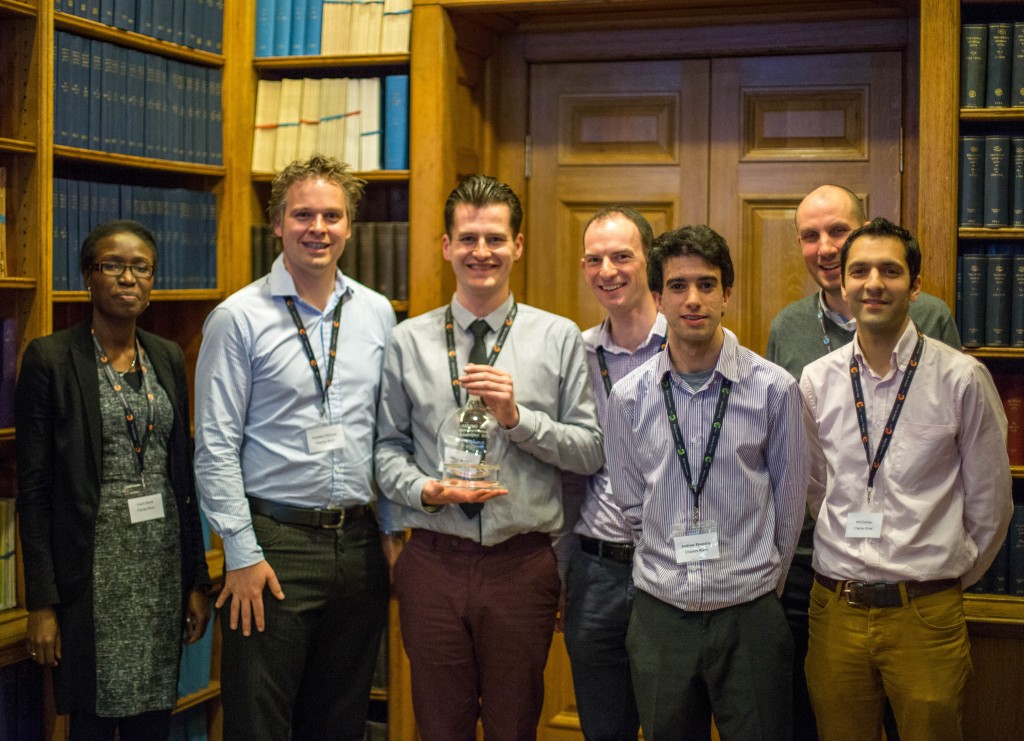On Friday the 27th of February, Burlington House was the venue for the final of the 2nd National Retrosynthesis Competition. This event was jointly organised by the Heterocyclic and Synthesis Group of the Royal Society of Chemistry, and the Fine Chemicals Group and Young Chemists Panel of the SCI, under the lead of Rob Wybrow of Syngenta, UK.
From 50 teams who entered the preliminary round in December 2014, 10 were selected for the final by the judging panel, Professor Chris Willis (Bristol University), Professor Rob Stockman (Nottingham University), Dr Wes Heaton (GSK) and Dr Mike Mortimore (Vertex). The finalists were drawn from a broad cross-section of chemistry-based organisations, universities and academic institutions, pharmaceutical companies, CROs and agrochemicals.
In the final, teams presented their synthetic strategies for the recently identified, as yet unsynthesized natural product, alistonitrine A, and answered questions from the audience challenging their reasoning and route selection. Trophies for the winning teams were generously provided by Chemglass Life Sciences, and the overall winners received an additional prize of a year’s subscription to Natural Product Reports, provided by the Royal Society of Chemistry.
The winning team “One ED”, representing Charles River Laboratories, received a Huber Unichiller 003-MPC (donated by Huber). The runners up were “Oxford SBM Team” from Oxford University who received a Flashforge Creator 3D Printer (donated by Chemglass Life Sciences), and the third place on the podium was taken by “Team Dalton Towers” from the University of Manchester, who received a J Young 5 port Vacuum Manifold (donated by GPE).
The organising committee would like to thank all of the teams who entered for their contributions, the finalists, judges, guests, attendees, sponsors and exhibitors for their significant input into the event. Based upon enthusiastic positive feedback from participants and special guests on the day the competition was hugely successful, underlining the key central importance of synthetic organic chemistry in both fundamental and applied research in the UK. Taking that positive momentum forwards, the organising committee has already begun their planning for the 3rd National Retrosynthesis Competition, to be held in early March 2016.











